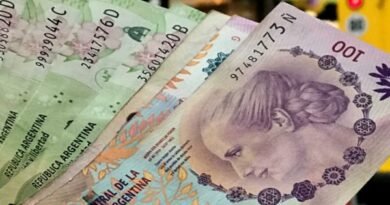“Scholar” Milei praises Thatcher and loses presidencial debate
[ad_1]
Scholar Milei praises Thatcher and loses presidencial debate
Milei spoke to a few who would understand his intellectual stance and was outperformed by Massa, who understood elections are about winning over the rank-and-file
Libertarian Congressman Javier Milei somehow lost his temper during Sunday’s debate with Economy Minister Sergio Massa, insisting that the latter should raise the level of his discourse. He even accused the representative of the ruling Union for Patria (UP) coalition of resorting to a strategy known as falacia ad populum, insisting on technical jibber-jabber as if the auditorium were the illustrated faculty made up of a few and not millions of voters.
Milei also dodged the question of whether the rights of the Falkland Islanders (referred to as kelpers) should be respected in Argentina’s sovereignty claims, which both candidates agreed should not be abandoned, and then highlighted the role of former British Prime Minister Margaret Thatcher as a world leader, which further infuriated the nationalistic part of the constituency.
On this and other points, Massa asked people which Milei to believe: the one who was speaking at the University of Buenos Aires Law School or the one who had said the opposite on this or that TV show a few days earlier. The Minister of Economy often suggested that people look up on Google what Milei had submitted in writing to the Electoral Tribunal and see if it matched what his rival was saying. In this respect, Milei was right: Massa was indeed using the falacia ad populum strategy.
When discussing security issues, Milei – again speaking with academic airs – brought up Gary Becker’s 1968 Crime and Punishment: An Economic Approach, adding that these guidelines had been successfully applied in New York by former Mayor Rudy Giuliani. Massa replied that – on this particular issue – he would agree since his own book describing his actions in this regard as mayor of Tigre – a suburb northwest of the city of Buenos Aires – had been prologued by Giuliani. Then Milei hit back, wondering why, despite all Massa’s work in Trigre, his wife, Malena Galmarini, had not been elected mayor earlier this year.
I believe deeply in openness to international trade. Countries open to trade have incomes nine times higher than those that are closed. The State should not intervene in trade relations, because it ends up being a hindrance. It is a private matter in which the State should not interfere. I have marked my relationship with the U.S., Israel, and the free world. I want nothing to do with countries that do not respect personal freedoms [namely most BRICS members]. I have no problem in apologizing to Pope Francis and we are ready to receive him in Argentina giving him the honors of Head of State and Spiritual Head. Thatcher was a great leader like Churchill or De Gaulle. She had a great role during the fall of the Berlin Wall, but it bothers you that the Wall fell. We consider that the Malvinas are Argentine, [Vice-presidential candidate] Victoria [Villarruel] is the daughter of a Malvinas hero, and we are willing to do everything to make them Argentine again. I believe in a free Argentina and in free individuals who can trade with whomever they want, Milei said.
Massa replied: One of my greatest dreams is to be the president of labor. To create two million new jobs and, for that, I chose the path of collaboration between the state and the business community. I announced zero tax on exports and the reduction of the tax system. We will replace social plans with formal and registered work. We will return to the ‘814’ program that eliminates social charges for all industrial developments in the North. I also promise to strengthen regional economies and increase production volumes. Today women do not receive the same for the same tasks. There has to be equal pay for equal work. For the last book you wrote you have three complaints for plagiarism. Milei… Macri wrote your speech. To businessmen, I say do not open the economy indiscriminately. Do you, Milei, want to export to 8 million people but you are not willing to trade with China and Brazil?
Milei also insisted he would dollarize the economy and close the Central Bank. Massa underlined that those solutions had already been tried by countries such as Zimbabwe with no commendable results. Hence, despite rampant inflation coupled with growing insecurity and unemployment, the economy minister of an administration with such achievements to show for was almost unanimously believed by Argentine media to have been the winner of Sunday’s debate.
[ad_2]
Source link




